
The Bosnian War was an international armed conflict that took place in Bosnia and Herzegovina between 1992 and 1995. The war is commonly seen as having started on 6 April 1992, following several earlier violent incidents. It ended on 14 December 1995 when the Dayton Accords were signed. The main belligerents were the forces of the Republic of Bosnia and Herzegovina, the Republic of Herzeg-Bosnia, and the Republika Srpska, the latter two entities being proto-states led and supplied by Croatia and Serbia, respectively.

Behind Enemy Lines is a 2001 American action war film directed by John Moore in his directorial debut, and starring Owen Wilson and Gene Hackman. The film tells the story of Lieutenant Chris Burnett, an American naval flight officer who is shot down over Bosnia and uncovers genocide during the Bosnian War. Meanwhile, the rear admiral commanding the carrier strike group to which he is assigned is struggling to gain approval to launch a combat search and rescue mission to save Burnett. The plot is loosely based on the 1995 Mrkonjić Grad incident that occurred during the war.

The Srebrenica massacre, also known as the Srebrenica genocide, was the July 1995 genocidal killing of more than 8,000 Bosniak Muslim men and boys in and around the town of Srebrenica during the Bosnian War. It was mainly perpetrated by units of the Bosnian Serb Army of Republika Srpska under Ratko Mladić, though the Serb paramilitary unit Scorpions also participated. The massacre was the first legally recognised genocide in Europe since the end of World War II.
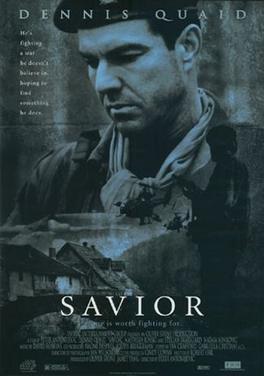
Savior is a 1998 American war film starring Dennis Quaid, Stellan Skarsgård, Nastassja Kinski, and Nataša Ninković. It is about a U.S. mercenary escorting a Bosnian Serb woman and her newborn child to a United Nations safe zone during the Bosnian War. It was produced by Oliver Stone.

Danis Tanović is a Bosnian film director and screenwriter. He is the recipient of numerous accolades, including an Academy Award and a Golden Globe Award, as well as nominations for the Golden Bear and the Palme d'Or.
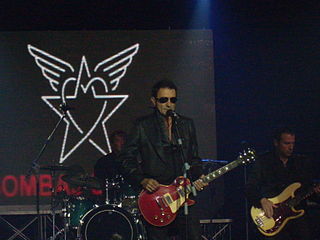
Branko Đurić, also known by his nickname Đuro, is a Bosnian actor, comedian, film director and musician, who lives and works in Ljubljana, Slovenia.

8+1⁄2 Women is a 1999 comedy-drama film written and directed by Peter Greenaway and starring John Standing, Matthew Delamere, and Vivian Wu. An international co-production of the United Kingdom, the Netherlands, Luxembourg, and Germany, it was entered into the 1999 Cannes Film Festival.

Kontroll is a 2003 Hungarian comedy–thriller film. Shown internationally, mainly in art house theatres, the film is set on a fictionalized version of the Budapest Metro system. "Kontroll" in Hungarian refers to the ticket inspectors checking to ensure a rider has paid their fare. The story revolves around the ticket inspectors, riders, and a possible killer.

Pretty Village, Pretty Flame is a 1996 Serbian film directed by Srđan Dragojević with a screenplay based on a book written by Vanja Bulić.
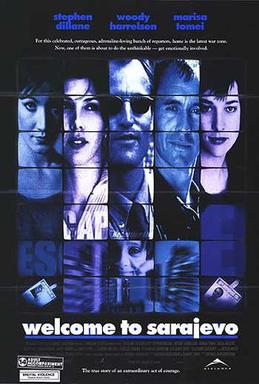
Welcome to Sarajevo is a 1997 war drama film directed by Michael Winterbottom, written by Frank Cottrell Boyce and is based on the book Natasha's Story by Michael Nicholson. The film stars Stephen Dillane, Woody Harrelson, Marisa Tomei, Emira Nušević, Kerry Fox, Goran Višnjić, James Nesbitt, and Emily Lloyd.
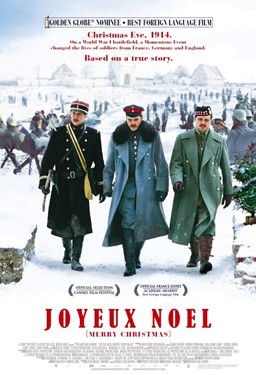
Joyeux Noël is a 2005 war drama film based on the Christmas truce of December 1914, depicted through the eyes of French, British, and German soldiers. It was written and directed by Christian Carion, and screened out of competition at the 2005 Cannes Film Festival.
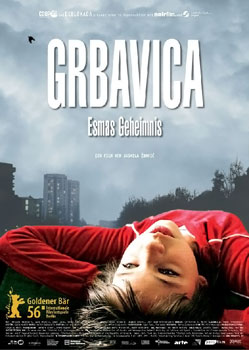
Grbavica is a 2006 film by Jasmila Žbanić about the life of a single mother in contemporary Sarajevo in the aftermath of systematic rapes of Bosniak women by Serbian soldiers during the Bosnian War. It was released in the United Kingdom as Esma's Secret: Grbavica, and in US as Grbavica: Land of My Dreams.

Raising Victor Vargas is a 2002 American comedy-drama film directed by Peter Sollett, written by Sollett and Eva Vives. The film follows Victor, a Lower East Side teenager, as he deals with his eccentric family, including his strict grandmother, his bratty sister, and a younger brother who completely idolizes him. Along the way he tries to win the affections of Judy, who is very careful and calculating when it comes to how she deals with men. In a subplot, Judy's friend Melonie is depicted in her own romantic adventure. The film was screened in the Un Certain Regard section at the 2002 Cannes Film Festival.

Western is a 1997 road movie directed by Manuel Poirier. The film was selected as the French entry for the Best Foreign Language Film at the 70th Academy Awards, but was not accepted as a nominee.
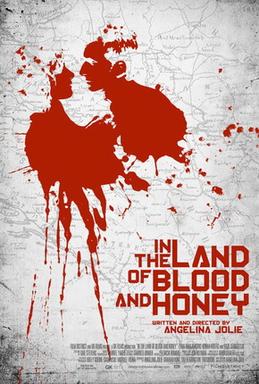
In the Land of Blood and Honey is a 2011 war drama film written, produced, and directed by Angelina Jolie, and starring Zana Marjanović, Goran Kostić and Rade Šerbedžija. The film, Jolie's first commercial release as a director, depicts a love story set against the background of the Bosnian War. It opened in the United States on December 23, 2011, in a limited theatrical release.
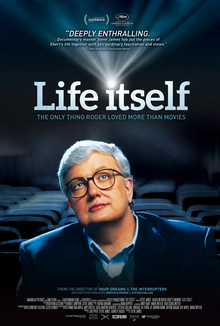
Life Itself is a 2014 American biographical documentary film about Chicago film critic Roger Ebert, directed by Steve James and produced by Zak Piper, James and Garrett Basch. The film is based on Ebert's 2011 memoir of the same name. It premiered at the 2014 Sundance Film Festival and was an official selection at the 67th Cannes Film Festival. The 41st Telluride Film Festival hosted a special screening of the film on August 28, 2014. Magnolia Pictures released the film theatrically in the United States and simultaneously via video on demand platforms on July 4, 2014.

Stranger by the Lake is a 2013 French erotic thriller drama film written and directed by Alain Guiraudie. The film premiered in the Un Certain Regard section at the 2013 Cannes Film Festival where Guiraudie won the award for Best Director. The film also won the Queer Palm award, and was mentioned on multiple top-ten lists of the best films of 2014.
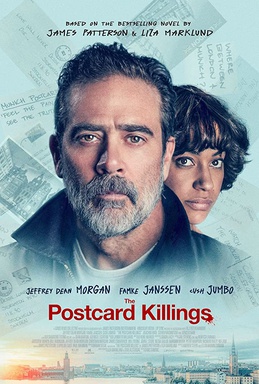
The Postcard Killings is a 2020 American crime film directed by Danis Tanović, starring Jeffrey Dean Morgan, Famke Janssen and Cush Jumbo, and based on the 2010 novel The Postcard Killers by James Patterson and Liza Marklund. The film was released on March 13, 2020, receiving negative reviews from critics.

Quo Vadis, Aida? is a 2020 internationally co-produced war drama film written, produced and directed by Jasmila Žbanić. An international co-production of twelve production companies, the film was shown in the main competition section of the 77th Venice International Film Festival.

Onoda: 10,000 Nights in the Jungle is a 2021 adventure drama film directed by Arthur Harari and written by the director and Vincent Poymiro, with the collaboration of Bernard Cendron. It is freely inspired by the life of Hiroo Onoda. It is an international co-production between France, Japan, Germany, Belgium, Italy, and Cambodia.




















